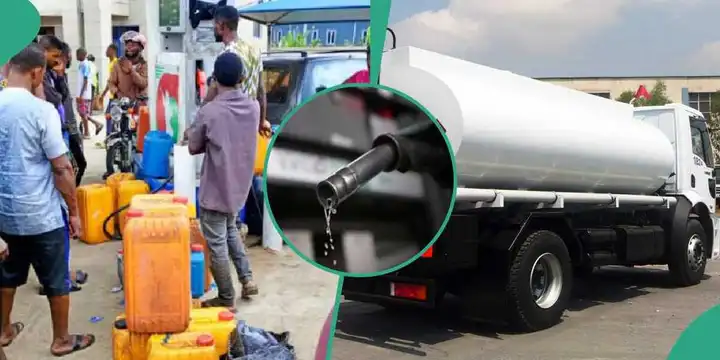
Oil marketers and industry experts have projected a significant reduction in petrol prices across Nigeria by 2025, with prices potentially dropping to as low as N500 per litre. This anticipated decline comes as the Port Harcourt, Warri, and Dangote refineries are expected to resume or commence operations, driving competition in the petroleum sector.
Currently, petrol prices range between N900 and N950 per litre at many filling stations. However, stakeholders believe that a steady supply of refined products, coupled with deregulation policies, will significantly impact pricing.
The National Publicity Secretary of the Independent Petroleum Marketers Association of Nigeria (IPMAN), Ukadike Chinedu, described the upcoming operations of the Port Harcourt and Warri refineries as transformative. In a recent interview, he emphasized that multiple production sources will enhance competition and eliminate monopoly-driven pricing.
Chinedu noted that recent price reductions by both the Nigerian National Petroleum Company Ltd (NNPC) and the Dangote Group are early indicators of the benefits competition can bring. He expressed optimism that with increased refining capacity and the federal government’s naira-for-crude policy, petrol prices could fall below N500 per litre, easing inflationary pressures.
Similarly, Billy Gillis-Harry, President of the Petroleum Products Retail Owners Association of Nigeria (PETROAN), shared Chinedu’s optimism. He highlighted the recent reduction in NNPC’s ex-depot price from N1,045 to N899 per litre, a move that has already translated to lower pump prices for consumers.
Gillis-Harry stressed that the operationalization of local refineries will further stabilize the market, providing Nigerians with more affordable fuel options.
Iche Idoko, Publicity Secretary of the Crude Oil Refiners Association of Nigeria (CORAN), added that deregulation is already fostering healthy competition. He explained that price reductions, improved product quality, and favorable credit facilities for bulk purchasers are among the benefits Nigerians will experience as the market adapts to full deregulation.
Naira-for-Crude Initiative as a Game-Changer
A major contributor to the projected price reduction is the federal government’s naira-for-crude initiative, which seeks to reduce reliance on foreign exchange for fuel imports. Industry players believe this policy will ease pressure on the naira and help stabilize the economy.
Continuous Importation Despite Local Refinery Progress
Meanwhile, despite the optimism surrounding local refining, oil marketers have continued importing petrol. Recent data from the Nigerian Ports Authority reveals that imported fuel continues to arrive at major ports, including Apapa, Tin Can, and Calabar.
As the Port Harcourt and Warri refineries gear up to resume operations, stakeholders remain hopeful that increased local production will eventually phase out heavy reliance on imports, further stabilizing prices and ensuring steady supply across the country.
With these developments, 2025 is shaping up to be a transformative year for Nigeria’s downstream petroleum sector, promising significant relief for consumers and a more competitive market.







